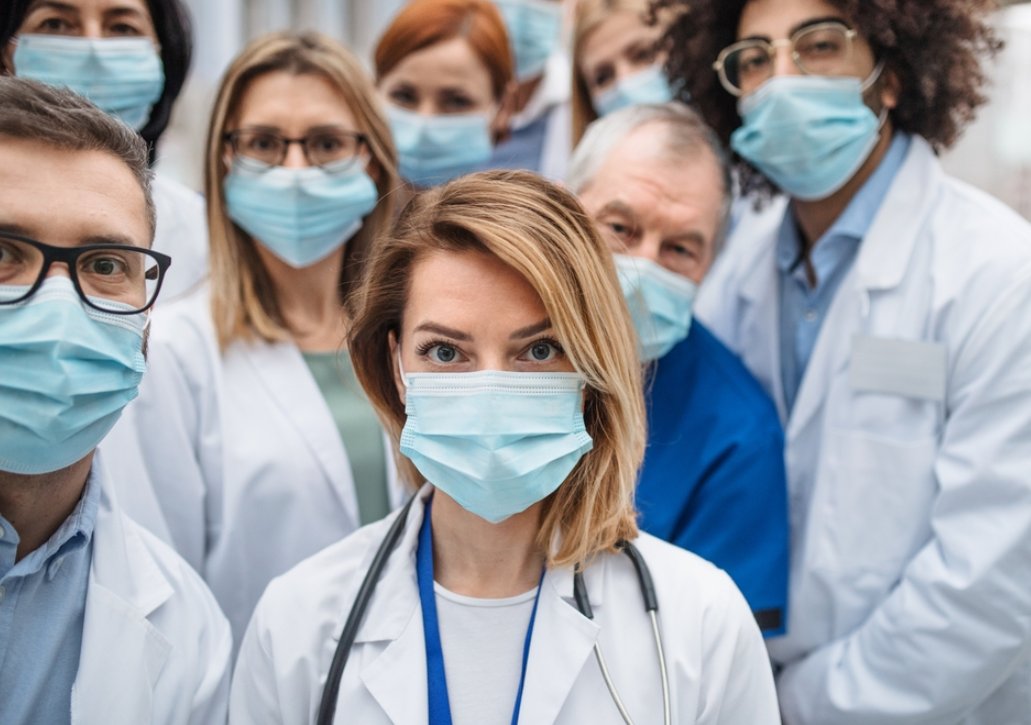Dr. Gary Sidley, a former NHS Consultant Psychologist and co-founder of Smile Free, has a piece in the Critic today criticising the persistence of widespread masking in healthcare settings and summarising the evidence for why masks are a bad idea.
Over recent weeks there has been a marked reduction in the number of people wearing face coverings in retail settings, hospitality venues and on public transport. Given the ineffectiveness of masks in reducing viral transmission, together with the multiple harms associated with them, this transition is both rational and welcome. Paradoxically, the prominent exceptions to this return to a mask-free society are NHS facilities and venues allied to health. Widespread masking of both staff and patrons persists in all hospitals, health centres and GP practices, and most dentists, opticians and pharmacies.
A sphere of society where one might reasonably expect a reliance upon evidence-based practice, is now the outlier in persisting with the unscientific and pervasively damaging mass-masking phenomenon. More troublingly, healthcare’s insistence that staff and visitors continue to wear masks constitutes additional risks to the wellbeing of the people who use these services. Some of the general harms of face coverings are likely to be particularly problematic in these settings, including:
Impaired communication
Clear communication is a central requirement for effective healthcare. By muffling speech and hiding non-verbal signals, masks significantly impede the efficiency of information sharing, potentially impairing the professional’s understanding of the clinical problem and the patient’s understanding of the recommended therapeutic intervention. Those with hearing impairment (estimated to be about one-in-six of the UK population), who often rely on lip-reading, will suffer the most. Given that the elderly population are frequent users of health services, those impacted by this mask-induced communication problem will be even higher in these settings. And the consequences of muffled speech in hospitals can sometimes be catastrophic.
Increased risk of falls in the elderly
By blocking parts of the lower peripheral visual field, and causing spectacles to steam up, masks will increase the risk of falls in older people with ongoing mobility difficulties. Injuries, such as fractured femurs, are more prevalent in the elderly. Expecting face coverings from this demographic, the most regular visitors to healthcare facilities, can only exacerbate the risk.
Aggravation of respiratory problems
For patients with existing respiratory problems, the requirement to cover their airways with cloth or plastic will often inflict additional distress. Masks can make breathing more difficult, a problem likely to be more apparent after long periods of wear, such as those routinely experienced in hospital Accident and Emergency departments. Furthermore, face coverings can inflate the risk of acquiring pneumonia and other respiratory diseases. One study found for example that as little as four hours of wearing a cloth or plastic mask increased vulnerability to bacterial infection. There are also the largely unknown risks from the inhalation of micro-plastics and the exposure to contaminants in the textiles.
Worth reading in full.
Stop Press: Double-masking offers people no more protection than single-masking and may increase their risk of becoming infected, according to a new study from Johns Hopkins University and Florida State University. MailOnline has more.











To join in with the discussion please make a donation to The Daily Sceptic.
Profanity and abuse will be removed and may lead to a permanent ban.